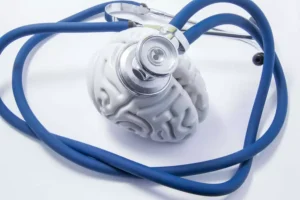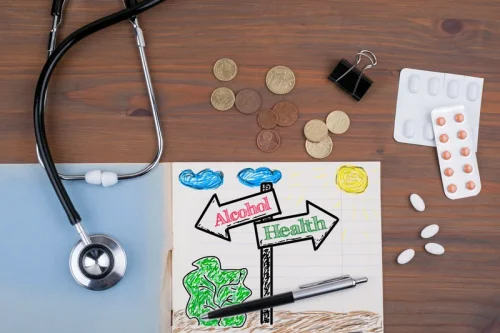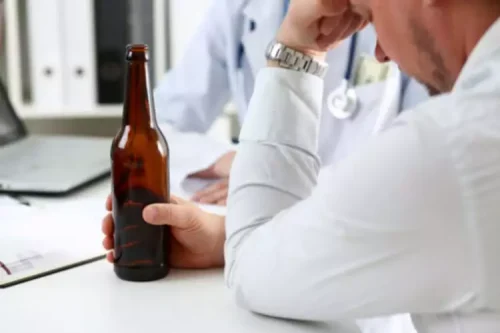
It may make you feel drowsy and fall asleep quickly—but later in the night it messes with your sleep patterns as it works through your system. Since alcohol is a depressant, it can throw your sleep cycle off balance by slowing down your nervous system. As your nervous system speeds back up once the alcohol exits your system, you may experience sleep disruption and wake up more throughout the night. “Insomnia is pretty common among people who abuse alcohol,” Dr. McGrath says. “You may notice an increase in mental clarity and memory, [since] alcohol use can impact concentration and memory,” he explains. For men, this can look like lowered libido and erectile dysfunction, as well as decreased muscle mass.

Increased risk of health conditions and disease
- For example, the frequency, duration, and the amount of alcohol consumed when drinking can all play a role in the severity of withdrawal symptoms.
- It may make you feel drowsy and fall asleep quickly—but later in the night it messes with your sleep patterns as it works through your system.
- The most prominent effects are on the liver, which is where alcohol gets broken down, but there are secondary effects on our other organs, such as the heart, gastrointestinal tract, pancreas, and brain.
Below are a few physical benefits you may notice after ditching alcohol. The CDC considers a standard drink as 0.6 ounces of pure alcohol—or roughly 12 ounces of beer, 5 ounces of wine or 8 ounces of malt liquor. Seek immediate medical attention if you or someone you’re caring for is experiencing these symptoms, repeated vomiting, severe shaking, or hallucinations (seeing, hearing, or feeling things that aren’t real). Mocktails and so-called zero-proof beverages are growing commonplace on menus as more people opt to follow a “sober curious” or strictly teetotal lifestyle.

How Long Does It Take Your Liver to Detox From Alcohol?
They will initially be milder, with a headache, tremors and mild anxiety being the first symptoms. While mild at first, they will begin to intensify as withdrawal progresses. While alcohol is high in calories, and wine, beer, and mixed drinks add sugar to one’s diet, cutting it out may or may not help you lose weight depending on how much alcohol you consume regularly. According to the Dietary Guidelines for Americans, alcohol should be consumed in moderation — up to one drink per day for women and up to two drinks per day for men. While alcohol is high in calories, and wine, beer, and mixed drinks add sugar to one’s diet, Kumar said that simply cutting it out may not always help you lose weight. The current Dietary Guidelines for Americans recommend that alcohol should be consumed in moderation — up to one drink per day for women and up to two drinks per day for men.

You Might Lose Weight
If you’re seeking help for yourself or a loved one, our expert team is here to guide you every step of the way. Even deciding to become sober and following through on it can be a powerful catalyst what happens when you stop drinking for repairing relationships, demonstrating how serious you are about focusing on others. Relationships are complicated, and each one will develop and heal in different ways and timeframes.
- In reality, it’s never too late for you to stop drinking alcohol and recover from its harms.
- Individuals often witness profound transformations in their physical health, mental well-being, relationships, and overall quality of life.
- These symptoms peak within 72 hours, but people with serious alcohol withdrawal symptoms should work with a healthcare provider as the experience can be fatal.
- Plus, many people find they have more energy and free time for activities like exercise.
How does my mental health improve when I stop drinking alcohol?
There are several ways you can help cut down the amount of alcohol you’re drinking. Making a plan and setting a limit on how much you are going to drink – and how much you are going to spend – can be useful. A pint of 4% beer – or a medium glass of wine – equals 2.3 units of alcohol. “You’ll sleep better without alcohol, both because it affects sleep quality and because you are less likely to need to get up to pee during the night,” she says. Cognitive functions—including problem solving, decision making and self-regulation skills—can also improve with continued sobriety, adds Dr. Kellogg.

Week Two Benefits
- There’s no miracle diet by any means, but the Mediterranean diet, for example, can help fill some of the nutritional gaps you may have due to alcohol use.
- If you’re keeping up with this average (or less), the damage from alcohol is most likely minimal.
- “Sometimes people drink alcohol to help them relax or navigate social anxiety, only to find it makes things worse,” says McMahon.
If you’re a heavy drinker, your body may rebel at first if you cut off all alcohol. You could break out in cold sweats or have a racing pulse, nausea, vomiting, shaky hands, and intense anxiety. Some people even have seizures or see things that aren’t there (hallucinations). Your doctor or substance abuse therapist can offer guidance and may prescribe medication like benzodiazepines or carbamazepine to help you get through it. Many people with alcohol use disorder also have other mental health conditions like depression, anxiety, bipolar disorder, or schizophrenia. A big part of alcohol recovery is taking steps to improve your lifestyle through changes like diet and exercise.

